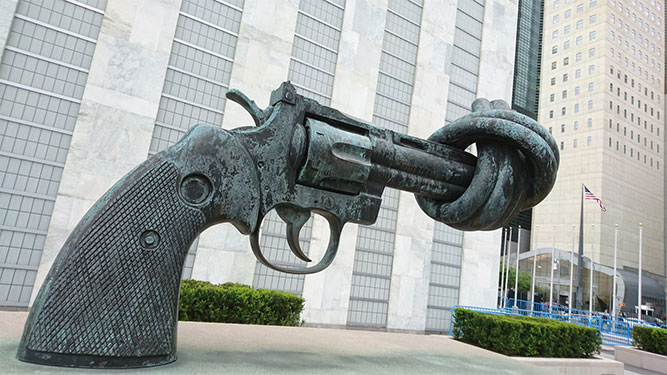This analysis summarizes and reflects on the following research:
Fry, D. P., Souillac, G., Liebovitch, L., Coleman, P. T., Agan, K., Nicholson-Cox, E., Mason, D., Gomez, F. P., & Strauss, S. (2021). Societies within peace systems avoid war and build positive intergroup relationships. Humanities and Social Sciences Communications, 8(1), 1–9. https://doi.org/10.1057/s41599-020-00692-8
Talking Points
- The existence of peace systems, defined as “clusters of neighboring societies that do not make war with each other,” demonstrates that peaceful intergroup and international relationships are possible.
- Particular peace-related variables appear stronger in peace systems than in non-peace systems, suggesting that there are indeed recurring features that contribute to peaceful relationships among societies.
- The most prominent features observed in peace systems were non-warring norms, followed in order of decreasing importance by non-warring rituals, non-warring values, and security interdependence.
- Peaceful interaction among societies is valuable not only in and of itself but also because it has the potential to advance the global collaboration necessary to address global challenges such as pandemics, the loss of species, climate change, and nuclear proliferation.
Summary
“A world without war” is commonly considered to be wishful thinking on the part of those too naïve to understand that it is impossible to eliminate war. War, along with its acceptance as an inevitable element of the human experience, is rarely questioned. In this study, anthropologist Douglas Fry and colleagues build on his earlier work debunking the notion of war as inevitable and part of human nature by systematically comparing peace systems to other types of social systems. The researchers suggest that an understanding of peace systems holds implications for “promoting positive, cooperative inter-societal relationships in a variety of other social contexts, including within regional and global spheres.” The central goal of the study was to “explore how societies operating with non-warring peace systems sustain peace.”
